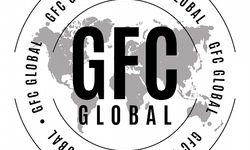Financial literacy is essential for effective money management. Of course, you always have an opportunity to take a loan via apps like the online loans app. But if you want to build healthier spending habits, make more financially savvy decisions, and broaden your investing prospects, you should stay informed and educate yourself. If you are unsure where to start, follow this brief guide and discover the best free resources available on the internet.
1. NerdWallet and Investopedia
Financial literacy websites are fantastic free sources of information on budgeting, investing, money, and debt management. NerdWallet and Investopedia offer hundreds of short articles and informative long-reads that provide comprehensive overviews of personal finances, taxes, student loans, stocks, banking, and up-to-date financial news. Start with these resources if you are wondering where to begin your financial literacy journey.
2. Khan Academy’s Finance and Online Courses
Websites like Udemy, Coursera, and Khan Academy offer a plethora of free courses on financial literacy. From money management, personal finances, and budgeting to debt management, economics, and capital markets, educating yourself has never been easier. Unlike brief articles on Investopedia, online courses require a bit of dedication. Still, it is a worthwhile experience that will help you learn the basics, enhance your expertise, and deepen the existing knowledge.
3. MyMoney.Gov and Governmental Resources
Federal government websites are also great financial literacy resources. MyMoney.Gov was launched by the Federal Financial Literacy and Education Commission and has a plethora of quizzes, checklists, budgeting worksheets, and other tools to help you manage your finances.
4. Freakonomics Radio and Other Related Podcasts
Available on Spotify, Freakonomics Radio is an invaluable source on finance and economics. Unlike the previous options, this podcast offers a quirky and fun perspective as it applies economic theory to various everyday topics. Besides, it may shake your established beliefs and presuppositions about economics. If you are not a podcast listener, consider checking out Freakonomics: A Rogue Economist Explores the Hidden Side of Everything. After all, there is a reason why over 4 million copies of this non-fiction book were sold.
5. Non-Fiction on Economics and Finance
You have probably heard about Robert Kiyosaki’s Rich Dad Poor Dad, right? From Housel’s The Psychology of Money to Stanley’s The Millionaire Next Door, the number of books written annually about money management and personal finances is truly astounding. Start by googling the best finance books of all time, check Goodreads’ reviews, and get insight from the world’s most famous financial gurus and investors. Prior to buying a book on finances, read Reddit discussions and reviews; just because a book is popular doesn’t mean that it offers sound advice.
The internet offers a variety of free resources on money management. From non-fiction books and podcasts to Khan Academy’s online courses and financial literacy websites, all these resources help you gain an in-depth understanding of the topic, broaden your area of expertise, and help you make more financially sound decisions.















